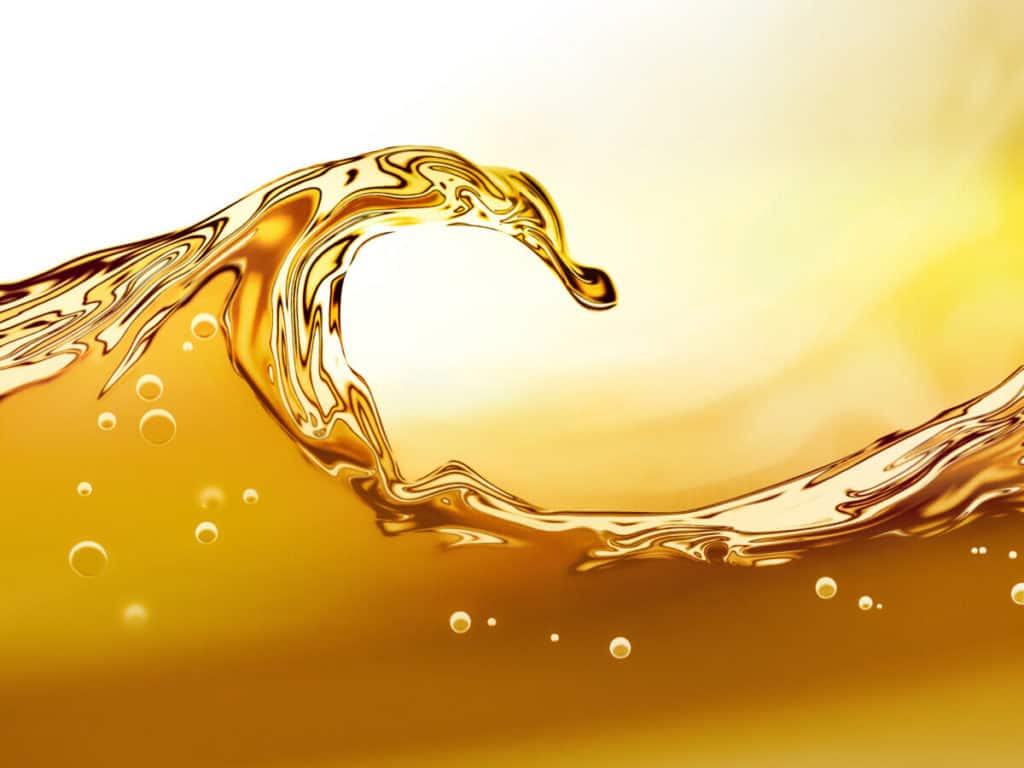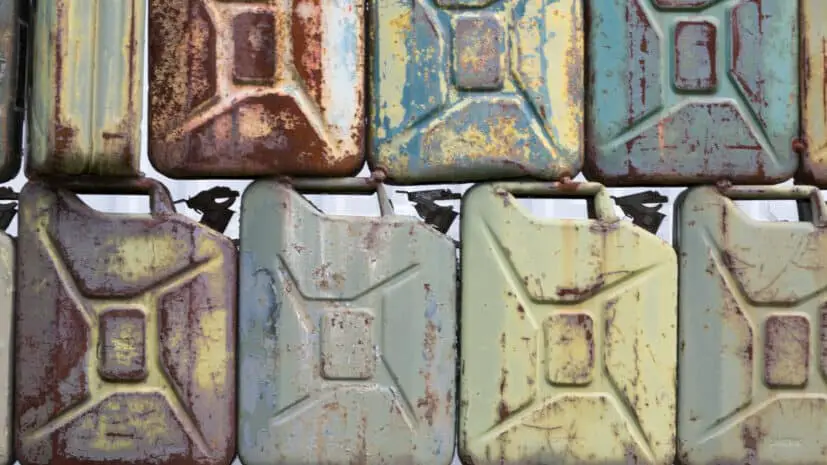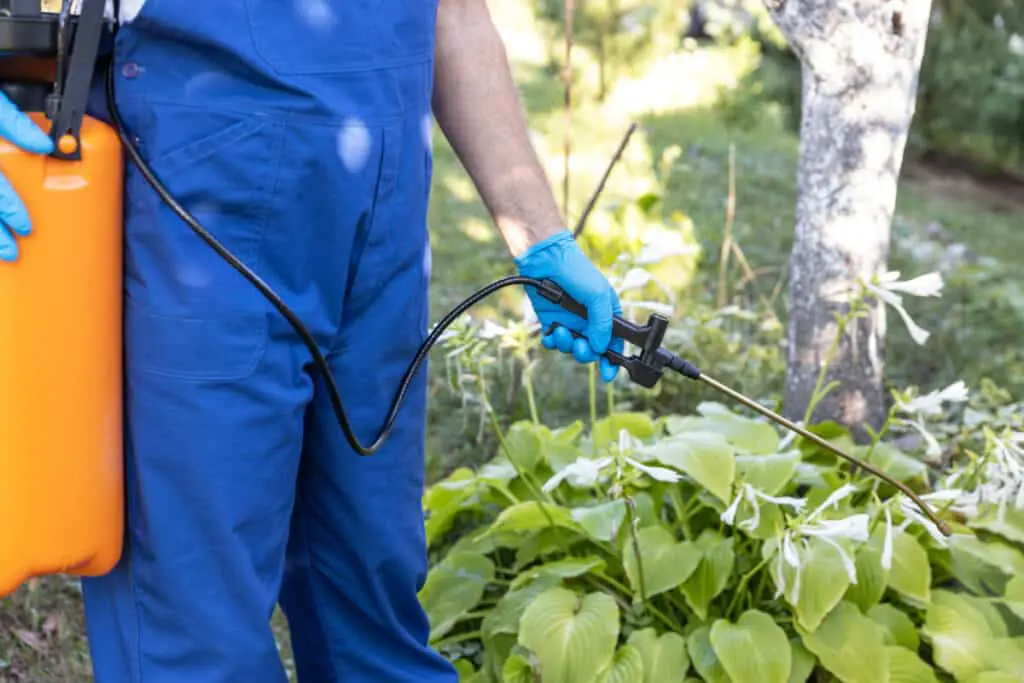
Fuel for your car is a necessity for driving and working for most people, but what about those occasional situations that you run into where you find some old gasoline sitting in your garage and you’re not sure what you should do with it? We have a few ideas.
Old gasoline can be cut 50/50 with new gasoline if it’s been stored properly to be reused in a vehicle’s engine, otherwise, it should be disposed of properly. Gasoline when it has reached a certain point in its shelf-life will become oxidized to the point where it is unsafe to operate an engine.
Here we’ll talk about the different types of bad gas that you might run across such as expired gas, gas with water, or gas contaminated with debris, and what you should or could do with each of those kinds of expired gasoline.
Expired Gasoline
There are a few different things that could make your gasoline “bad”. The most obvious reason your gas would go bad is because of deterioration. Gasoline would be considered expired if it’s sat for too long and has been exposed to the air and heat. When gasoline sits for too long, it begins to oxidize and degrades rapidly after it hits a certain point. Sitting too long could mean 3 months or 3 years based on the type of gas being stored.
An ethanol mixture is usually added to the gasoline that you buy from a gas station. Typical unleaded gasoline with an ethanol blend from your local gas station will be too degraded to use after 3 months, while pure gasoline without any added ethanol will last much longer: up to 6 months. The mixture is usually a 10%-15% ethanol to 90%-85% petroleum ratio. The reason that ethanol is added to regular gasoline is for that very purpose of oxygenating gasoline. When gas is oxygenized, it helps the engine burn all fuel completely. Ethanol is also supposed to give us cleaner emissions and thus, cleaner air.
If you have regular ethanol-mixed gas that’s been sitting for over 3 months or pure gasoline that’s been sitting for over 6 months, it’s been degrading, and it’s probably unsafe to use in your car. Using questionable gas like this in your car could cause engine damage.

How To Know If Gas Is Expired or Too Old
Old gas will have a different smell, almost “sour” in odor, and appear to have a darker color and thicker texture to it. It can also lack the typical gasoline smell. It’s a good idea to mark on the side of your gas can with a sticky note or tape when you purchased the gasoline so that you don’t have to try to figure out how long the gas has been sitting there.
Have you ever helped out in a senior citizen’s house with moving and cleaning and noticed that the car had been sitting in the garage for what appeared to be a long while? It happens to the best of us. When we moved my great grandmother, her poor car had suffered from lack of use for some time.
If the gasoline in question has been sitting in your engine, you may notice that the old gas triggers a “Check Engine” light because of its failure to burn properly. Old gasoline can cause starting issues when you try to turn the key. Expired gas has been known to cause problems while the car is idling or just simply power problems while driving. It’s always better to be safe than sorry. (Source)
What Can You Do With Old Gas?
- Take It To A Center
Each county has its own waste management methods to dispose of garbage and waste products. You can look at your county’s website for specific information on where to bring old gasoline, or give them a call. They should be able to direct you to the proper disposal site. There are a few mechanic shops that will take old fuel without a fee as well.
2. Mix Old Gas With New Gas
With gas prices soaring above $4 in some locations, you may find that you want to try this method instead of totally throwing the old gas away. This is definitely a cheaper way to dispose of old gasoline, and if you’re pretty sure that your gas isn’t too old, like 1 year or more, this may be your next best option to use it rather than losing it. All you need to do is mix the gasoline with 50% old to 50% new gasoline, and the large engine of your car should be able to handle burning off the old gas as long as there’s new gas mixed in with it.
Keep in mind that this method would not be recommended if your gas has been contaminated by debris or has water in it. Those things are not meant to be burned by a vehicle’s engine. In the next two examples, we’ll say that these are examples of what not to do with old gasoline.
3. Weed Killer

Some homeowners have decided to repurpose their old gasoline by turning it into a make-shift weedkiller. In theory, you can simply attach a nozzle to your gasoline container and spray down those undesirable plants with the old fossil-based fuel sitting in your garage. This is probably not a good idea as there’s no telling what it will do to the soil after it’s been sprayed on, and growing new plants there may be a challenge for years to come. Luckily there are weedkilling options that are safer for your yard than gasoline and are made so that they won’t potentially damage the soil or groundwater supply underneath your home.
4. Evaporation
Another not-so-great option for disposing of old gasoline is allowing it to simply evaporate by leaving the top off of the container and allowing the fumes to be carried away with the wind. This one also seems questionable when you think of it. There’s no telling what potential damage you could release into the air that could be a hazard to you or your family. (Source)
Related Topics:
If you like the article above, here are some other similar articles you should check out!
What Should I Do with Old Apple Products
